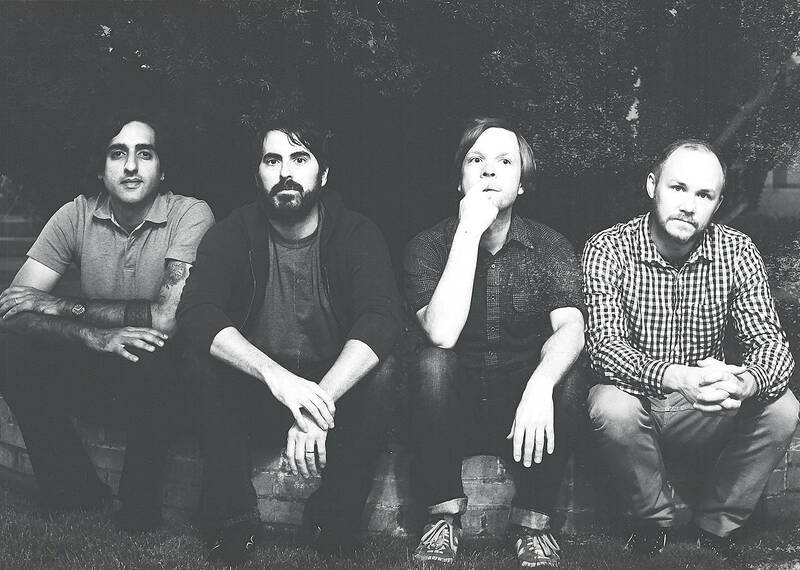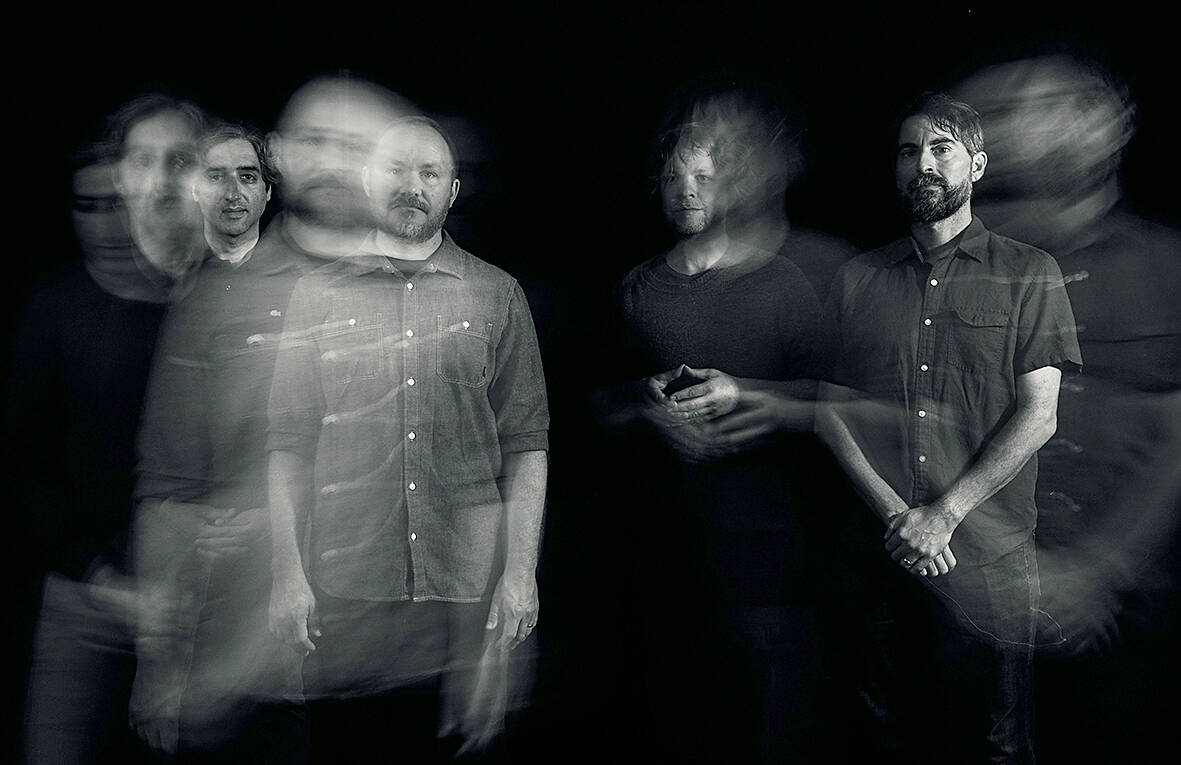Taiwan concert goers are once again poised to embark on a sonic journey like no other as Explosions in the Sky prepares to take the stage of Legacy Taipei.
The tour marks the Taiwan return of the pioneers of the early 2000s post-rock. The quartet will play selections from their latest masterpiece, The End, released last year.
Tickets for the March 11 show are sold out.

Photo courtesy of Explosions In The Sky
When asked about the cryptic title of the newest album, guitarist Munaf Rayani said by phone from Detroit: “The four of us are on such a spectacular musical frequency and we are lucky to have somebody in life that you really, you know, meld with and you share perspectives and philosophies and an aesthetics.”
Dispelling the concerns fans have had about the title being a hint that the band’s tenure was coming to a conclusion, he said that the title refers to the end of a cycle of life — but also a beginning.
The End is the band’s first studio release post-COVID-19, a period that forced the group to reimagine the writing process remotely from each other. With this new adaptation in writing style, the album has delivered on all expectations with its lush compositions, occasional peppering of electronic harmonies and transcendent melodies.

Photo courtesy of Explosions In The Sky
The band’s meticulous and hypercritical writing process involves generating hundreds of demos over the course of a year before finalizing album selections and eventually recording together. With albums typically resulting in no more than a nine track total run, it’s a significant challenge to leave so much material on the cutting room floor.
Rayani remains optimistic and passionate about the band’s future, hinting at much more to come.
“We feel fortunate to continue refining and showcasing our musical abilities after all these years; it’s incredibly gratifying. We’re hopeful for another album... While I can’t promise it’ll be next year, I certainly hope it won’t take us another seven years.’”

Photo courtesy of Explosions In The Sky
Sponsored by White Wabbit Records, the same label that originally brought the band to Taipei in 2002, this return to Taipei underscores the band’s enduring appeal in Taiwan and their unwavering commitment to continuously engaging fans and pushing the boundaries of sonic exploration.
By phone, White Wabbit Records founder and boss KK Yeh (葉宛青) said of inviting the band to Taiwan: “We were young and inexperienced at the time, and never thought too much about it, but we saw an opportunity to bring a band we loved to Taiwan, and a band that had never been outside of the US.”
But the band and organizers quickly found a friendship in likemindedness.
“It felt like a summer holiday in high school, hanging out with our pals,” Yeh said.
Rayani said that he still has fond memories of the band’s inaugural visit early on in their careers.
“I remember our first trip vividly, being able to walk the streets and going to eat at the street markets. They really made us feel so welcome and it really left a lasting impression.”
Rayani said that the band has come along way from its teenage years to today.
“We were very young doing this thing together and it was very DIY. It showed us that, you know, even us being from Texas, in the United States, that on the other end of the world, there was a very similar scene going on in Taiwan.”

One of the biggest sore spots in Taiwan’s historical friendship with the US came in 1979 when US president Jimmy Carter broke off formal diplomatic relations with Taiwan’s Republic of China (ROC) government so that the US could establish relations with the People’s Republic of China (PRC). Taiwan’s derecognition came purely at China’s insistence, and the US took the deal. Retired American diplomat John Tkacik, who for almost decade surrounding that schism, from 1974 to 1982, worked in embassies in Taipei and Beijing and at the Taiwan Desk in Washington DC, recently argued in the Taipei Times that “President Carter’s derecognition

This year will go down in the history books. Taiwan faces enormous turmoil and uncertainty in the coming months. Which political parties are in a good position to handle big changes? All of the main parties are beset with challenges. Taking stock, this column examined the Taiwan People’s Party (TPP) (“Huang Kuo-chang’s choking the life out of the TPP,” May 28, page 12), the Democratic Progressive Party (DPP) (“Challenges amid choppy waters for the DPP,” June 14, page 12) and the Chinese Nationalist Party (KMT) (“KMT struggles to seize opportunities as ‘interesting times’ loom,” June 20, page 11). Times like these can

June 23 to June 29 After capturing the walled city of Hsinchu on June 22, 1895, the Japanese hoped to quickly push south and seize control of Taiwan’s entire west coast — but their advance was stalled for more than a month. Not only did local Hakka fighters continue to cause them headaches, resistance forces even attempted to retake the city three times. “We had planned to occupy Anping (Tainan) and Takao (Kaohsiung) as soon as possible, but ever since we took Hsinchu, nearby bandits proclaiming to be ‘righteous people’ (義民) have been destroying train tracks and electrical cables, and gathering in villages

Dr. Y. Tony Yang, Associate Dean of Health Policy and Population Science at George Washington University, argued last week in a piece for the Taipei Times about former president Ma Ying-jeou (馬英九) leading a student delegation to the People’s Republic of China (PRC) that, “The real question is not whether Ma’s visit helps or hurts Taiwan — it is why Taiwan lacks a sophisticated, multi-track approach to one of the most complex geopolitical relationships in the world” (“Ma’s Visit, DPP’s Blind Spot,” June 18, page 8). Yang contends that the Democratic Progressive Party (DPP) has a blind spot: “By treating any